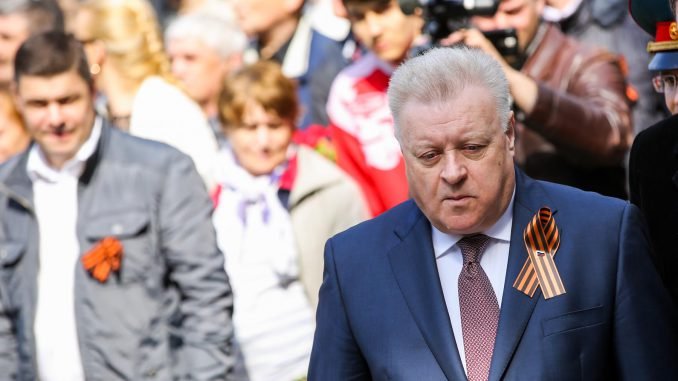
In the letter, circulated by the Embassy of the Russian Federation in Vilnius, Ambassador Udaltsov extends his “heartfelt” congratulations to Lithuania and thanks World War Two veterans. He then changes the congratulatory tone somewhat, warning against “rehabilitation of Nazi criminals” and talking about “individual countries” that are allegedly trying to forge history.
“As we remembering those uneasy years and pay tribute to millions of war victims, it is as important as ever to prevent the resurgence of fascist ideology and rehabilitation of Nazi criminals. We must relentlessly and resolutely fight forgers of history and attempts to revise World War Two results by individual countries in Europe. Today we stand witnesses to what unprincipled position on this point can lead to,” Udaltsov says in the letter.
Fascism has been a common accusation by Moscow directed at the new government of Ukraine, in a thinly-veiled attempt to justify its aggression in Donbass and annexation of Crimea.
The reference to “forgers of history” is possibly meant for Poland whose Foreign Minister Grzegorz Schetyna angered the Kremlin last week when he said that Ukrainians liberated the Auschwitz death camp.
Udaltsov concludes his congratulatory letter with a mention of planned World War Two commemoration events in Moscow this May: “I hope you will soon join me in marking the 70th anniversary of the Great Victory, this year’s most important event.” Lithuanian President Dalia Grybauskaitė famously declined an invitation from the Russian government to come to Moscow for the festivities, as did a number of other leaders.
Maliukevičius: Ambassador is seeking conflict
Political analyst Nerijus Maliukevičius says that Ambassador Udaltsov’s wording of the letter is clearly aimed at provoking controversy.
“The ambassador is making a move in information war. Clearly, such a letter will cause outrage in the Lithuanian media. Scandal is the intention here and it will happen. I think that everything is tailor-made for a particular context and the Putinist pseudo-antifascist narrative,” according to Maliukevičius.
He expects to see more similar provocations coming from Russia in the run-up to WWII commemoration in Moscow.
“Similar information attacks will grow more frequent. Let’s not forget the date that is approaching… Looking back at 2005, when the debate was much more narrowly focused – on whether Baltic leaders would go to Moscow or not – it is clear now that discussions on Western leaders’ participation in Moscow on 9 May will proceed in much wider circles, there will be considerably more doubts and the doubtful. Clearly, these are attempts to use this narrative in order to play the ‘big confrontation’ imagery,” according to Maliukevičius.

Be the first to comment